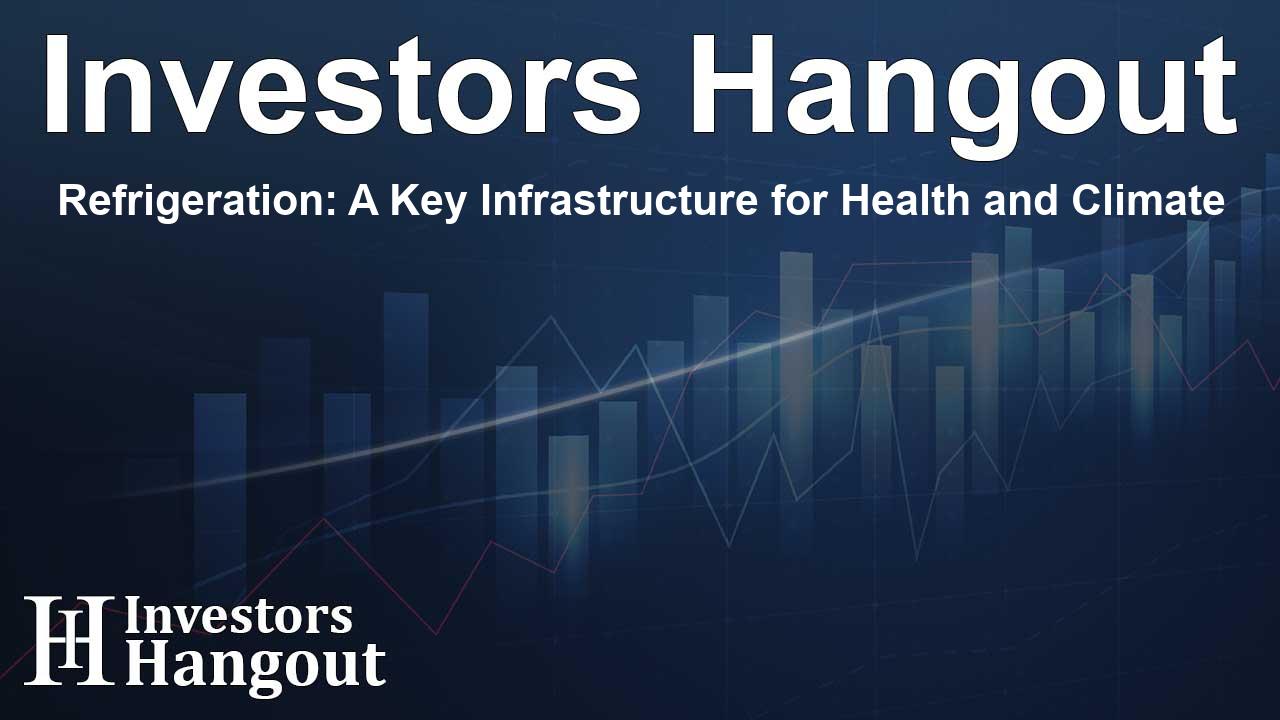Refrigeration: A Key Infrastructure for Health and Climate

Countries Urged to Establish National Refrigeration Committees
On World Refrigeration Day, the International Institute of Refrigeration (IIR) makes a pivotal call for all nations to view refrigeration as essential infrastructure for public health, food security, and climate sustainability. The IIR emphasizes the need for countries to establish National Refrigeration Committees. These committees would act as cross-sectoral platforms that coordinate sustainable refrigeration efforts across diverse applications including food safety, healthcare, and energy management.
The Significance of National Refrigeration Committees
The proposed National Refrigeration Committees are anticipated to draw together various stakeholders from public and private sectors, as well as academic institutions. This collaboration ensures that all parties contribute to the development of effective national refrigeration strategies that aim to enhance food systems and public health while fostering industrial growth and climate action. The IIR strongly advocates for these committees to be an integral part of national agendas, recognizing the vital role that refrigeration plays in these critical areas.
Strengthening Global Food Systems and Climate Action
The IIR’s emphasis on national refrigeration committees highlights a global movement towards recognizing refrigeration as a necessary resource for strengthening food systems and addressing climate challenges. Many experts believe this is a crucial moment for the refrigeration sector. Governments from regions including Indonesia and Nigeria have endorsed the idea that refrigeration's role extends beyond mere convenience; it has become core infrastructure necessary for supporting clean energy initiatives, enhancing food security, and promoting economic inclusivity.
Awareness and Action on Sustainable Refrigeration
During discussions, leaders noted that this decade marks a significant turning point in the refrigeration industry, with potential to drive sustainable practices. As stated by Yosr Allouche, the Director General of IIR, there is a strong call for vision, action, and inclusivity to build a better future. Leaders from various nations came together to voice their commitment to improving refrigeration in ways that can lead to broader societal benefits.
Innovations in the Refrigeration Sector
Numerous industry players have started showcasing new scalable innovations, with many implementing natural refrigerants and thermal integration to enhance energy efficiency. Companies like Carrier Transicold, Daikin Europe, and Danfoss Climate Solutions exemplify this forward-thinking approach by demonstrating cold chain solutions and heat pump technologies. However, excess potential can only be unlocked with supportive policies and predictable funding structures to foster continued innovation.
The Global Refrigeration Outlook Initiative
Furthermore, the launch of the Global Refrigeration Outlook by IIR marks an important step toward guiding policy, research, and investment in the refrigeration sector. This initiative is set to be the flagship report series, providing critical insights that can help shape the future of refrigeration on a global scale. Participants at the recent IIR event expressed strong enthusiasm for this new initiative, indicating a collective belief in its potential to inform and inspire positive change across various sectors.
Collaboration for Greater Impact
Industry leaders and governmental representatives emphasize that refrigeration is a global systems issue that necessitates collective action. Approaching refrigeration challenges collaboratively can facilitate rapid advancements and equitable benefits for all involved. The recent discussions highlighted how vital this collaborative approach is for addressing pressing global issues like climate change and energy access.
Frequently Asked Questions
What is the purpose of establishing National Refrigeration Committees?
These committees serve to unite various stakeholders to create coherent policies and strategies, reinforcing the importance of refrigeration in health, food security, and climate resilience.
Why is refrigeration considered essential infrastructure?
Refrigeration supports vital functions such as preserving food, ensuring healthcare efficacy, and aiding clean energy initiatives, making it a necessity for modern societies.
How do global leaders view the role of refrigeration?
Many leaders see refrigeration as central to sustainable development goals and crucial for promoting food security and energy efficiency.
What innovations are being emphasized in the refrigeration sector?
Innovations include the use of natural refrigerants, efficient cold chains, and advanced heat pump technologies to improve energy efficiency and environmental impact.
What is the Global Refrigeration Outlook?
The Global Refrigeration Outlook is a flagship report by IIR that aims to guide future policies, innovations, and investments in the refrigeration sector, receiving significant interest from industry leaders.
About The Author
Contact Addison Perry privately here. Or send an email with ATTN: Addison Perry as the subject to contact@investorshangout.com.
About Investors Hangout
Investors Hangout is a leading online stock forum for financial discussion and learning, offering a wide range of free tools and resources. It draws in traders of all levels, who exchange market knowledge, investigate trading tactics, and keep an eye on industry developments in real time. Featuring financial articles, stock message boards, quotes, charts, company profiles, and live news updates. Through cooperative learning and a wealth of informational resources, it helps users from novices creating their first portfolios to experts honing their techniques. Join Investors Hangout today: https://investorshangout.com/
The content of this article is based on factual, publicly available information and does not represent legal, financial, or investment advice. Investors Hangout does not offer financial advice, and the author is not a licensed financial advisor. Consult a qualified advisor before making any financial or investment decisions based on this article. This article should not be considered advice to purchase, sell, or hold any securities or other investments. If any of the material provided here is inaccurate, please contact us for corrections.
